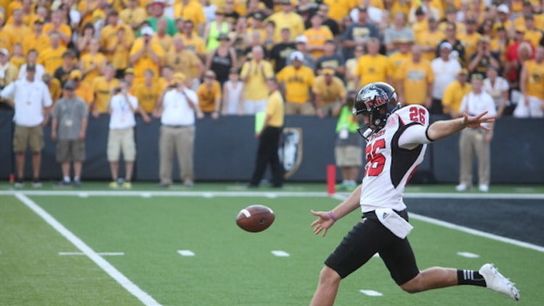In 2015, Peter Deppe wanted to transfer. Like hundreds of players every year, the Northern Illinois punter decided to ply his craft elsewhere and picked Iowa as his new destination. He was accepted academically by the school, but the NCAA did not grant him a waiver to play immediately. In response, the Hawkeyes looked elsewhere for a punter.
And in response to that, Deppe sued.
He didn't sue Iowa or Kirk Ferentz, but instead Deppe pointed the barrel of his legal rifle at Indianapolis.
Deppe contracted Hagens Berman Sobol Shapiro LLP to challenge the NCAA on grounds that the organization's mandated 1-year sidelining of FBS-to-FBS transfers was "an unreasonable restraint on trade" and, thus, violated federal antitrust laws. The law firm also sued the NCAA on similar grounds in another case -- and lost -- and, like in that case, also challenged the NCAA's cap on scholarships.
"It is unfortunate that plaintiffs’ lawyers continue to file meritless lawsuits while ignoring multiple court decisions that uphold NCAA transfer rule," NCAA chief legal officer Donald Remy said in a statement provided to USA Today.
However, U.S. District Judge Tanya Walton Pratt sided with the NCAA. Like in other cases that challenged the NCAA for violating labor laws, Pratt cited precedents that viewed college sports on academic laws, not labor, thus removing any antitrust restrictions.
The case is not over, as Deppe's legal team will seek to send the case to an appeals court, though, as USA Today notes, this same judge denied such a request on a similar case brought by the Seattle-based law firm previously.
